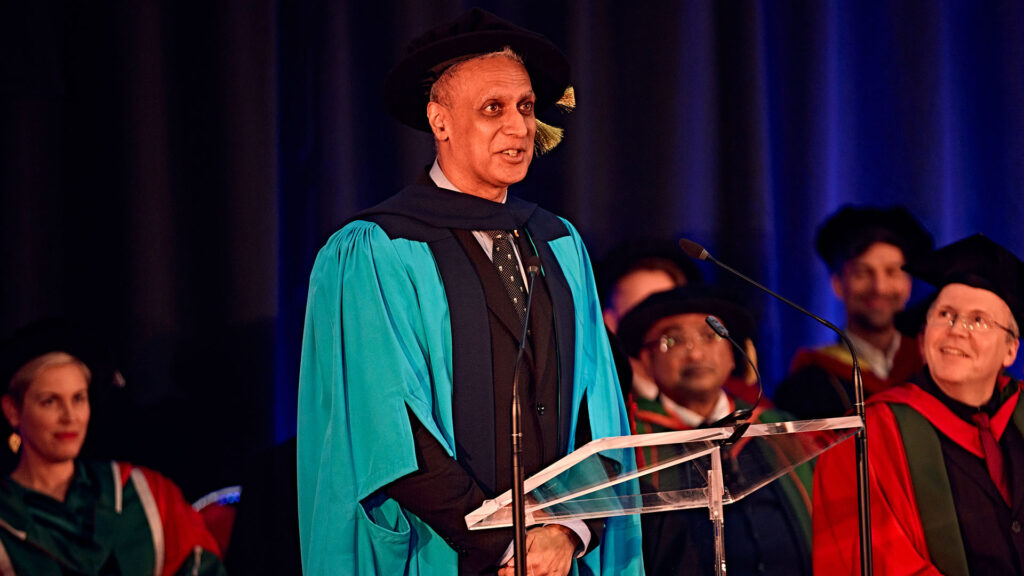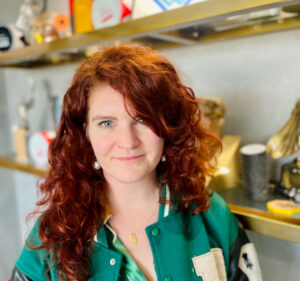Nitin Sawhney delighted with ‘wonderful’ honorary doctorate

Acclaimed musician Nitin Sawhney has hailed his “special” long-term relationship with the University of Huddersfield after receiving his honorary doctorate from the institution .
The multi-instrumentalist, club DJ, producer, songwriter and activist has added his doctorate to a raft of awards which include an Ivor Novello Lifetime Achievement but music students at the university have been benefitting from his knowledge in the shape of internships and a scholarship for a number of years.
“It is wonderful to receive this,” says Nitin, “particularly as although I’ve had a few honorary doctorates which I’m very proud of but this is particularly special I’ve had a great relationship with the university for a very long time.”
Nitin’s 1999 album Beyond Skin was nominated for the Mercury Music Prize, and he marked the release of his latest, Identity, with a concert at London’s Royal Albert Hall. He has scored major BBC documentaries including Human Planet and Monsoon, the 2018 film Mowgli, but in 2022 he played keyboards on Pink Floyd’s ‘Hey, hey (rise up)’, the legendary band’s first new music since the 1990s which raised money for Ukrainian refugees.
“I’ve known David Gilmour on and off for many years and he asked me how would I feel about being a member of Pink Floyd for a track? And I said, ‘Well, I don’t know, you’re such an unsuccessful band!’ They were so, so generous and Dave insisted that I was part of the band. I’ve absolutely adored Pink Floyd since I was a kid but he was saying that all the photographs, all the interviews have to be us as a band. It was very generous of him .”
With his ongoing relationship with the university seeing students given the chance to work with his organisation, Nitin is passionate about giving budding musicians and producers the chance which his role with the PRS Foundation also offers.
“I feel very passionate about new music and talent development. The PRS Foundation is very much about inclusivity and diversity. Tt’s a real leader in terms of how we’ve created programmes like Power Up, for example, which help young black artists and black promoters and managers to really get a foothold in the industry.
“Nine out of the 12 Mercury nominees last year were people who’d been funded by the foundation. The year before that it was eight out of the 12 Mercury nominees, so clearly the foundation has its finger on the pulse of development new talent. And so I’m really very excited about continuing to work as the chair of its trustees and what the PRS Foundation stands for. I feel very proud of its achievements.”




